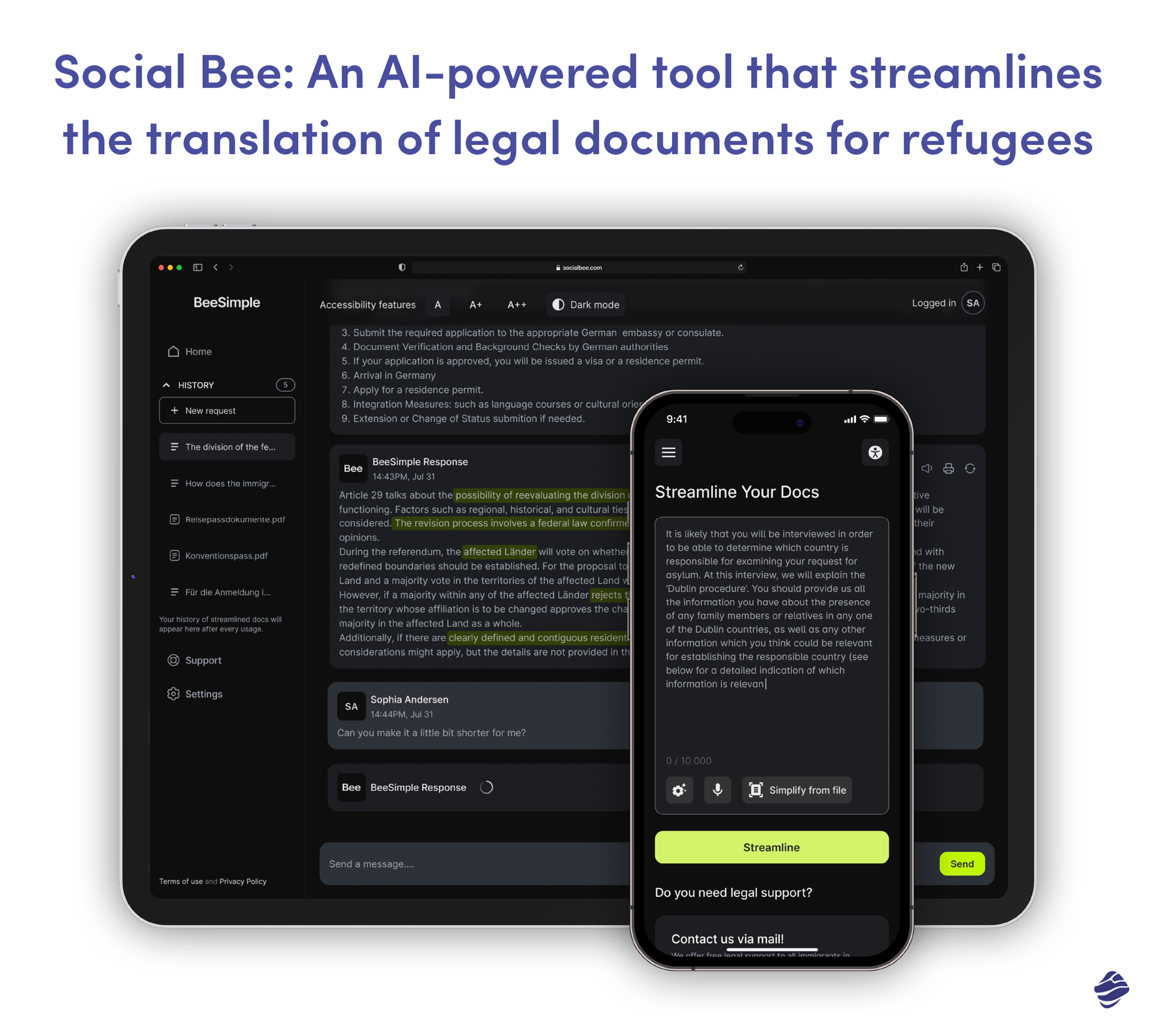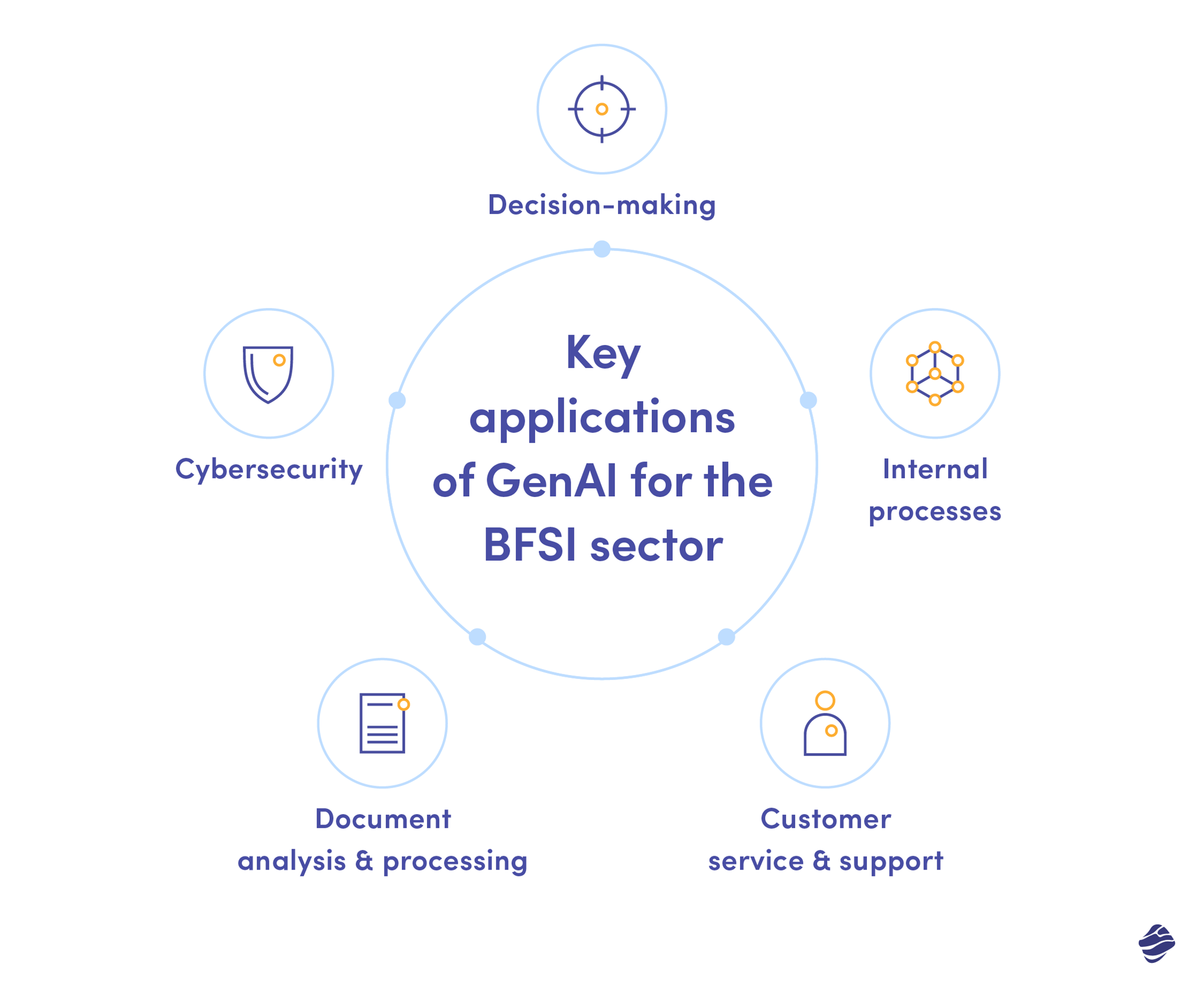How generative AI is shaping the future of finance
THE ARTICLES ON THESE PAGES ARE PRODUCED BY BUSINESS REPORTER, WHICH TAKES SOLE RESPONSIBILITY FOR THE CONTENTS

Miquido is a Business Reporter client.
According to forecasts, advances in generative AI could automate up to 50 per cent of current job tasks between 2030 and 2060.
It is predicted that in the banking, financial services and insurance sectors (BFSI), generative AI (GenAI) has the potential to increase labour productivity by 0.1 to 0.6 per cent per year until 2040. This could add between $200 billion and $340 billion in value to the industry.
Understanding the value of GenAI for the BFSI sector
The nature of the banking, financial services and insurance (BFSI) sector involves processing a large volume of textual documents. Many tasks, both in terms of internal processes and interactions with clients, require efficient natural language processing (NLP). This is precisely what large language models (LLMs), the foundation of GenAI, specialise in.
In this article, we will explore the areas of the BFSI sector that demonstrate the highest potential for automation. Additionally, we will consider the most effective strategies for AI-based implementation.
So, how can financial organizations benefit from GenAI?

1. Document analysis and processing
OpenAI integrations empower BFSI firms to automate document processing and analysis, minimise human errors and facilitate decision-making.
Generative AI can be highly beneficial in processing application forms. Because it can read, summarise and generate text, GenAI can analyse a bank customer’s filled-out form, extract essential information and generate a complete set of required documents with all the necessary data.
All of this can be done in just a few seconds and with minimal human effort.
Analytical workflows tailored to your needs
LLMs are incredibly versatile and can be adapted to suit the needs of financial services companies. They can be used to create personalised GenAI workflows for strategic areas. These workflows can cover the entire organisation or only a specific segment of it. They can be fully automated or include human employees to review preliminary decisions made by AI.
Every financial institution has unique needs. GenAI enables the full customisation of workflows to meet these requirements.
2. Customer service and customer support
Customer service (CS) and support is one of the biggest fixed costs for BFSI companies. Fortunately, when it comes to generative AI, CS is one of the easiest areas to optimise.
In customer support, language models can be used to create conversational shopping experiences or advanced chatbots that provide information about products and services in a natural way.
Chatbots powered by GenAI can provide great assistance to customers by summarising or translating regulations and contracts. This kind of support can be especially useful for clients unfamiliar with industry jargon or those who want to obtain specific information quickly without going through lengthy documents.

Inclusive customer service
Gen AI-powered chatbots can facilitate inclusive access to financial services.
Firstly, thanks to chatbots, users can get urgent answers 24/7, regardless of human consultant availability.
Secondly, users can receive assistance in their preferred language, without incurring additional costs, simply by asking questions in it.
Finally, AI chatbots can generate accessible answers to complex documents such as mortgage loan terms, helping users gain confidence in fintech solutions.
3. Internal processes and decision-making
Adopting Generative AI in the BFSI sector presents a tremendous opportunity for faster, data-backed decision-making. By using dedicated AI assistants, executives can gain access to business knowledge from a vast array of sources.
LLMs have been trained on vast amounts of data available on the web. However, they can be further enhanced by integrating additional data sources, such as internal knowledge bases or historical data. For example, financial institutions can provide data on the popularity of their services to improve the accuracy of LLMs in predicting market trends.
A LLM fed with data is much more useful for business purposes than a standard GPT. It can quickly search and combine responses from specialised sources, allowing for data-driven, yet dynamic responses to market changes.
AI affects the efficiency of the entire organisation
Generative AI has the crucial advantage of facilitating the digital growth of an organisation by streamlining internal processes such as IT support or human resources management. This results in the company as a whole functioning more efficiently.
Implementing IT helpdesks or HR support through GPT-based chatbots can be a great initial step towards digitally transforming an entire organisation. This can involve testing technological solutions, adapting workflows to suit the company’s requirements, or training staff on AI-based tools such as GenAI.
Additionally, implementing internal AI solutions leads to quick, tangible results such as increased efficiency and savings on internal processes.
4. Cyber-security
With the rapid advancement of AI, companies face increasingly complex threats, including deepfake videos and voice generation scams. BFSI firms must respond promptly and effectively to any suspicious activity to maintain customer trust and security.
GenAI has the potential to enhance security by creating solutions that detect fraudulent activities, such as social engineering attacks and deceptive messages. AI-based systems can be used to, for example, identify suspicious messages through sentiment analysis and recognising potential signs of fraudulent behaviour.

Key considerations for GenAI deployment
AI is not a silver bullet, but rather a tool that requires careful and responsible use, especially in the fintech and banking industries. In this article, we have outlined some of the applications of AI that are currently safe and provide expected benefits such as cost-savings and increased operational efficiency.
AI is an advancing technology. With the ongoing arms race between the major IT players, we can soon expect breakthrough innovations.
It’s essential to keep in mind that using generative AI requires ongoing experimentation with different approaches to prompt engineering, AI solution architecture and tech stack. Ideally, service providers should conduct their scientific research in these areas to ensure that their solutions are effective.
Hands-on experience in commercial AI projects
At the same time, it is essential to understand that implementing AI in commercial BFSI projects requires a precise, well-defined strategy. Hence, when selecting an AI consultant or a service provider, it is crucial to review their portfolio for a diverse range of AI projects, including generative AI, machine learning and data science.
Miquido has over six years of experience working in AI. We have completed more than 200 projects, dozens of them in the fintech sector, serving both start-ups and established brands. In the past year alone, we have completed over 20 GenAI projects.
AI can be a fast track to high ROI
Both research and our own experience confirm that it is a common challenge for businesses to identify appropriate AI use cases. This can be due to factors such as strict regulations, security policies and lack of experience.
Therefore, when beginning our collaboration with financial institutions, we recommend adopting AI solutions that are simple and cost-effective to implement while also delivering significant ROI within a relatively short timeframe, ranging from a few months to a year.
Download our AI in fintech guide to learn more about our AI-powered solutions for the BFSI sector.

Bookmark popover
Removed from bookmarks